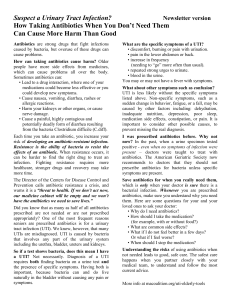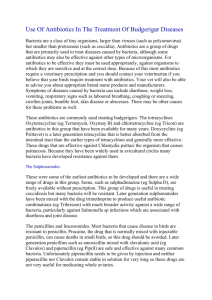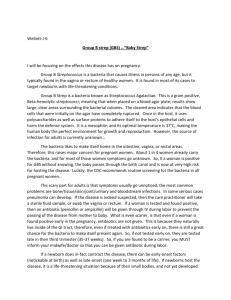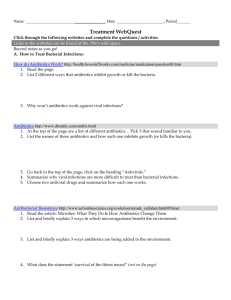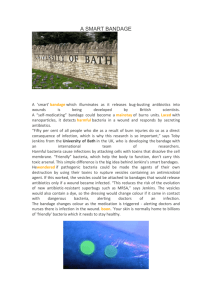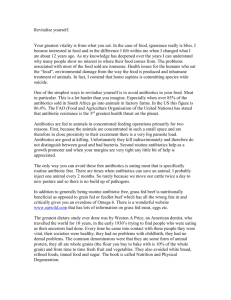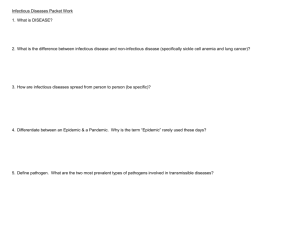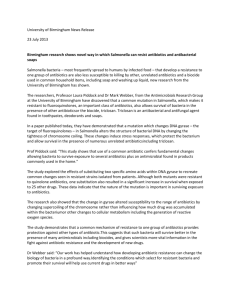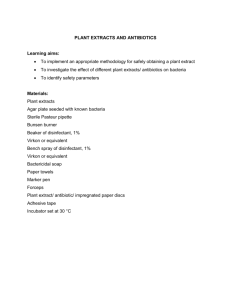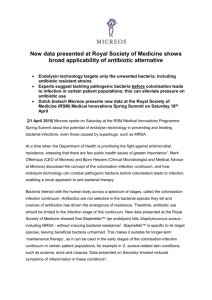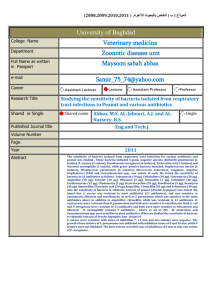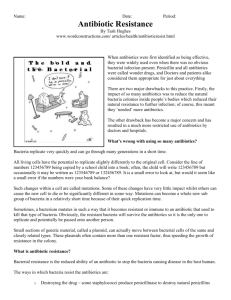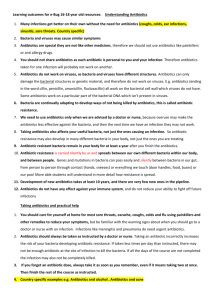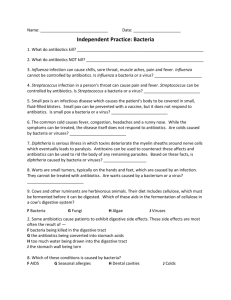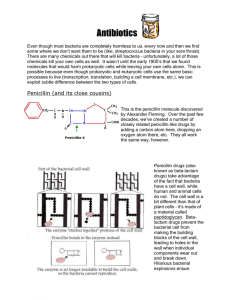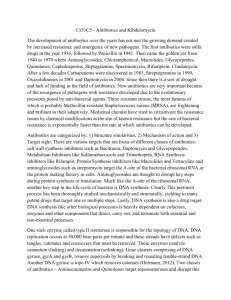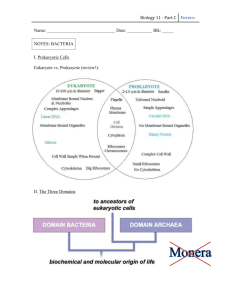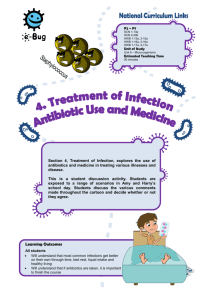Q&A September 2014 Antibiotics Can Be Bad
advertisement
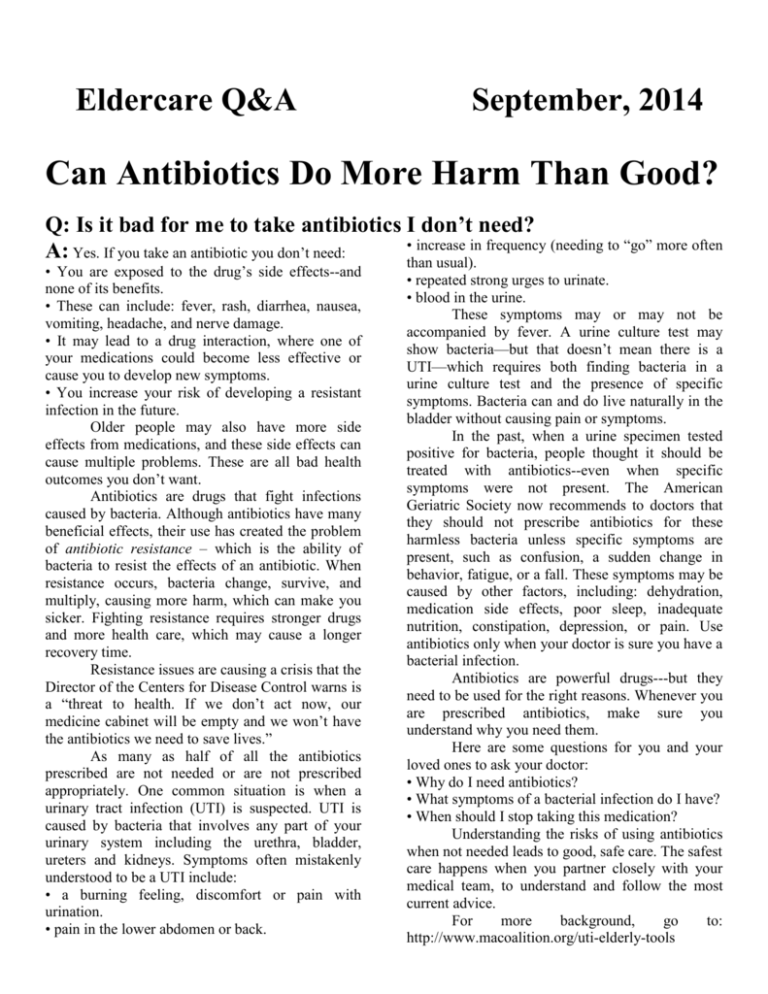
Eldercare Q&A September, 2014 Can Antibiotics Do More Harm Than Good? Q: Is it bad for me to take antibiotics I don’t need? • increase in frequency (needing to “go” more often A: Yes. If you take an antibiotic you don’t need: than usual). • You are exposed to the drug’s side effects--and none of its benefits. • These can include: fever, rash, diarrhea, nausea, vomiting, headache, and nerve damage. • It may lead to a drug interaction, where one of your medications could become less effective or cause you to develop new symptoms. • You increase your risk of developing a resistant infection in the future. Older people may also have more side effects from medications, and these side effects can cause multiple problems. These are all bad health outcomes you don’t want. Antibiotics are drugs that fight infections caused by bacteria. Although antibiotics have many beneficial effects, their use has created the problem of antibiotic resistance – which is the ability of bacteria to resist the effects of an antibiotic. When resistance occurs, bacteria change, survive, and multiply, causing more harm, which can make you sicker. Fighting resistance requires stronger drugs and more health care, which may cause a longer recovery time. Resistance issues are causing a crisis that the Director of the Centers for Disease Control warns is a “threat to health. If we don’t act now, our medicine cabinet will be empty and we won’t have the antibiotics we need to save lives.” As many as half of all the antibiotics prescribed are not needed or are not prescribed appropriately. One common situation is when a urinary tract infection (UTI) is suspected. UTI is caused by bacteria that involves any part of your urinary system including the urethra, bladder, ureters and kidneys. Symptoms often mistakenly understood to be a UTI include: • a burning feeling, discomfort or pain with urination. • pain in the lower abdomen or back. • repeated strong urges to urinate. • blood in the urine. These symptoms may or may not be accompanied by fever. A urine culture test may show bacteria—but that doesn’t mean there is a UTI—which requires both finding bacteria in a urine culture test and the presence of specific symptoms. Bacteria can and do live naturally in the bladder without causing pain or symptoms. In the past, when a urine specimen tested positive for bacteria, people thought it should be treated with antibiotics--even when specific symptoms were not present. The American Geriatric Society now recommends to doctors that they should not prescribe antibiotics for these harmless bacteria unless specific symptoms are present, such as confusion, a sudden change in behavior, fatigue, or a fall. These symptoms may be caused by other factors, including: dehydration, medication side effects, poor sleep, inadequate nutrition, constipation, depression, or pain. Use antibiotics only when your doctor is sure you have a bacterial infection. Antibiotics are powerful drugs---but they need to be used for the right reasons. Whenever you are prescribed antibiotics, make sure you understand why you need them. Here are some questions for you and your loved ones to ask your doctor: • Why do I need antibiotics? • What symptoms of a bacterial infection do I have? • When should I stop taking this medication? Understanding the risks of using antibiotics when not needed leads to good, safe care. The safest care happens when you partner closely with your medical team, to understand and follow the most current advice. For more background, go to: http://www.macoalition.org/uti-elderly-tools

